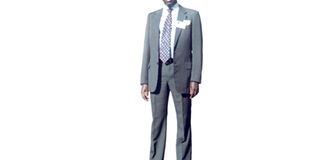In defence of Arts and Social Science courses

Harold Acemah
What you need to know:
- Verbal onslaught. I am frankly amazed and disappointed that Uganda’s academicians and scholars appear unable or unwilling or scared to come forward to set the record straight and undo some of the damage which NRM regime has done to the education sector of Uganda, exemplified by UPE and USE.
At the 15th graduation ceremony of Gulu University, held on January 11, Sabalwanyi launched a vicious, unprovoked and unnecessary attack on Arts and Social Science courses taught at Ugandan universities while glorifying natural science courses.
According to a story published in Daily Monitor of January 13 titled, “Museveni re-echoes focus on science courses,” Sabalwanyi warned public universities against wasting time and resources on what he called “meaningless courses” and instead focus on science and research.
“I want 100 per cent staffing for science courses in all public universities and the funds we give are enough (which is not true), the only problem comes in when you bring all these courses that do not add value (he often mentions SWASA, Peace Studies and Women Studies) instead of prioritising science,” said the head of state.
In response to a request made by Gulu University vice chancellor, Prof George Openjuru, for increased funding for the university, Sabalwanyi said: “Don’t train people just because we have a university, but they should be able to solve society problems.”
With all due respect, I would like to state for the record that there are no meaningless or useless courses. Students must be free to choose and study whatever courses they like and have an abiding interest in.
Knowledge is power. Knowledge acquired from studying Arts or natural science courses is useful and can be applied to solve personal, environmental and societal problems. It’s a fallacy to claim that only science courses are meaningful and useful in our efforts to address and find solutions to Uganda’s multifarious challenges and problems.
Like me, Sabalwanyi did Arts and Social Science courses at the University of East Africa (UEA) from 1967-1970. We graduated at the same convocation presided over by UEA chancellor, Mwalimu Julius Nyerere, in 1970. I believe the courses we studied equipped us for the different roles we have played here in Uganda and elsewhere. History will ultimately judge whether we played useful roles for Uganda or not, but if I were him I would exercise caution and humility in whatever I say and do.
As a social scientist, I find Sabalwanyi’s verbal onslaught offensive, misguided and unbecoming. I am frankly amazed and disappointed that Uganda’s academicians and scholars appear unable or unwilling or scared to come forward to set the record straight and undo some of the damage which NRM regime has done to the education sector of Uganda, exemplified by UPE and USE.
I was, therefore, pleased to read an insightful article on this topical subject by Mr Patrick Kaboyo published in the Daily Monitor of January 20, titled, “President should provide scholarly basis to justify irrelevance of Arts courses.” I look forward to a response to Kaboyo’s timely challenge.
I agree with Kaboyo that Sabalwanyi’s “insistence to publicly discredit courses that are well designed by the academic and approved by National Council for Higher Education should be treated as a national worry.”
Like all Ugandans, Sabalwanyi is entitled to his personal ideas and views on various issues, however absurd, false and misleading, but he should not force or impose his questionable views on anybody, let alone on public institutions which are funded by taxpayers of Uganda.
For the information of Ugandans, Unesco’s classification of education content includes and accords respect to Human and Social Sciences as integral components of education. The UN organisation acknowledges that Human and Social Sciences complement natural and life sciences.
Sabalwanyi’s derogatory remarks made at Gulu University reminded me of a classic work by Prof Thomas S. Kuhn published in 1962 titled, The Structure of Scientific Revolutions. According to The Times Literary Supplement, it’s among the 100 most influential books published since 1945 and was one the text books I studied at Graduate School at University of Toronto in 1991.
Kuhn shifted from being a student of physics to one of the history of science and gradually to history and philosophy.
His analysis and insights into the similarities and linkages between history, Natural Sciences and Social Sciences is fascinating and a landmark in intellectual history. Leonardo da Vinci epitomises the linkages between Arts and Natural Sciences.
Against this background, any attempt to denigrate Arts and Social Science courses as “meaningless courses” is ludicrous, a function of ignorance and an exercise in futility. My considered opinion and advice to vice chancellors of Uganda’s public universities is that they should take note of, but disregard the misconceived notion that some courses are meaningless.
Mr Acemah is a political scientist and retired career diplomat.
[email protected]




